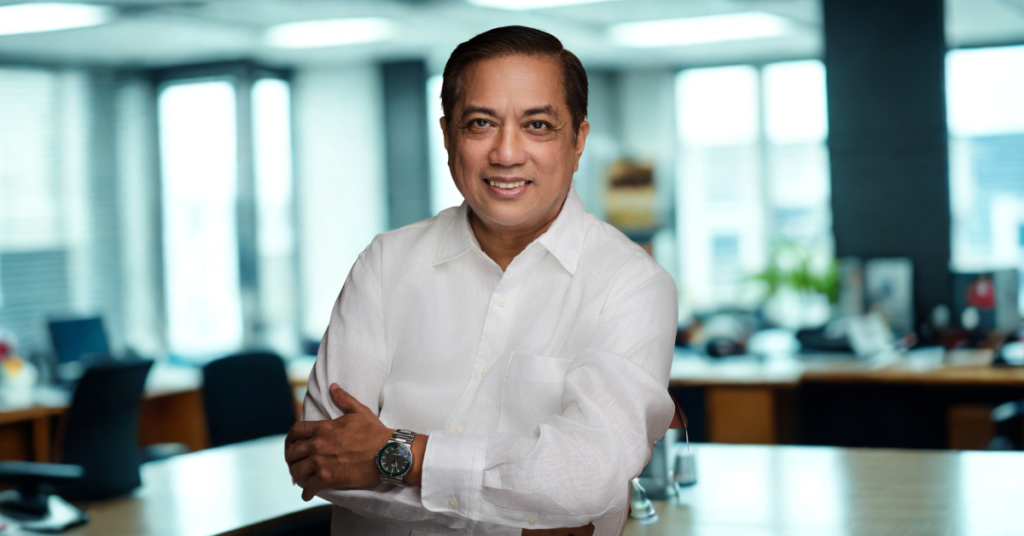Elmo Alforque didn’t begin his career with management consulting in mind. His professional story started in retail, shifted into insurance, and eventually took him back to the technology sector—where he rose to lead global technical support operations for a site of more than 500 engineers. Each stop added a new layer of perspective: the customer-first realities of retail, the governance and risk discipline of financial services, and the systems thinking demanded by technology. Together, they became the foundation for his second career as a consultant.
Today, Alforque advises organizations on transformation, culture, and strategy execution. His transition from corporate leader to consultant wasn’t accidental—it was the result of years spent navigating complexity and learning how to align people with systems.
A career shaped by multiple industries
Alforque’s consulting approach reflects the variety of industries he has worked in. Technology sharpened his ability to think in systems and anticipate how small issues ripple across an enterprise. Finance instilled in him a discipline for performance measurement and governance. Retail reminded him that no matter how complex an operation, the end goal is always serving the customer.
That combination shaped his adaptable, holistic lens as a consultant. “Each industry taught me something different about how businesses succeed,” he explains. “When I advise clients today, I don’t just bring frameworks—I bring real-world lessons on how strategy translates into action.”
Building skills that go beyond frameworks
Leading large teams prepared Alforque for consulting as much as his technical training did. Managing 500 engineers across global operations meant dealing with complexity, pressure, and cross-cultural dynamics. It also meant learning that leadership isn’t just about directing—it’s about creating conditions where people can succeed.
Professional development further strengthened his practice. He is Gallup Strengths-trained, a WIAL Action Learning certified coach, and a Project Management Professional (PMP®). On top of these, he holds the International Coaching Federation’s PCC credential, which honed his ability to listen deeply, ask the right questions, and co-create solutions with clients.
These skills, he says, are often what make the difference. “Consulting isn’t about having all the answers. It’s about helping clients find the right ones for themselves—and then supporting them to act on it.”
How consulting is evolving
Globally, Alforque sees consulting being reshaped by AI, digital transformation, and the demand for measurable outcomes. In the Philippines, he believes the biggest challenge and opportunity is navigating complexity—balancing global best practices with local realities.
“Clients don’t just want reports anymore,” he says. “They want to see impact, they want capability transfer, and they want to trust that what we co-create with them will last beyond the engagement.”
This shift has elevated adaptability, credibility, and trust as the real differentiators. In Alforque’s view, the most successful consultants aren’t those with the thickest playbooks, but those who inspire confidence and align stakeholders toward measurable results.
Leadership lessons
Alforque describes his leadership style as adaptive and strengths-based, with a focus on creating psychological safety. That mindset shapes his consulting practice, especially when dealing with teams under pressure.
One project highlights this approach. During a strategy execution engagement, he introduced what he called an “alignment blitz.” Each function was asked to articulate both “what I need” and “how I can support you.” What began as a siloed, fragmented initiative turned into a collaborative effort with shared ownership of results.
The lesson was clear: technical strategies only succeed when people feel safe enough to share, commit, and hold each other accountable.
Advice for future consultants
For those entering the field, Alforque’s advice is straightforward: don’t just be a service provider—be a trusted advisor. Handle clients with empathy, lead teams with structure, and balance technical expertise with people skills. A strategy on paper is only as good as the people who believe in it and execute it.
The CMC® journey
Alforque’s consulting career also intersects with professional standards. His Certified Management Consultant (CMC®) journey began in 2012 as part of Cohort 7 in the Philippines. At the time, he was still in a corporate leadership role, but the experience planted the seed.
Years later, after transitioning into full-time consulting and coaching in 2019, he pursued further training and completed a Postgraduate Certificate in Business and Management Consulting at the Asian Institute of Management in 2024. That program deepened his practice and gave him the confidence to secure his CMC® credential.
Preparation required distilling years of engagements into structured submissions that demonstrated client impact. It wasn’t just about listing achievements—it was about proving measurable value.
The credential has since enhanced his credibility with clients, validated his practice against international benchmarks, and created opportunities to collaborate across the region. For Alforque, though, it is less about the title and more about what it represents: a commitment to rigor, ethics, and measurable client outcomes.
Looking ahead
Asked what message he would give to consultants considering the designation, Alforque’s answer is simple: “The CMC® is more than a credential. It’s a commitment to deliver impact with competence and integrity.”
That same principle—balancing systems, people, and strategy—runs through his entire career. From retail and finance to technology and consulting, Alforque has shown that the real work of transformation isn’t just about frameworks or tools. It’s about earning trust, aligning people, and making sure strategies are lived out, not just written down.
![]()



